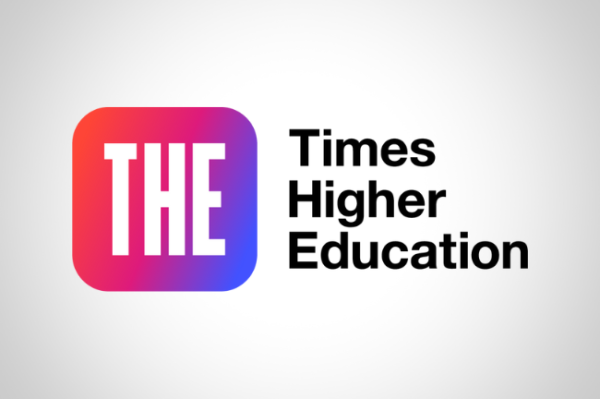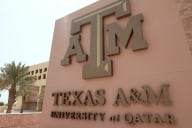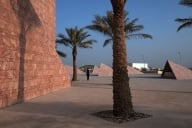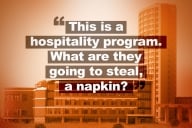You have /5 articles left.
Sign up for a free account or log in.
The apparent silencing of pro-Palestinian activism at New York University Abu Dhabi has “shattered the perception” that the institution can provide real academic freedom within its United Arab Emirates campus, according to critics.
Leaders of NYU Abu Dhabi (NYUAD) have been accused of failing to protect students and staff, with reports that a number have been detained, interrogated and even deported for expressing solidarity with Palestine.
Ahead of a commencement ceremony in May, students were banned from wearing keffiyehs—a scarf perceived to be a symbol of solidarity—or any other decorations on their outfits, with many refusing to shake hands with outgoing NYUAD vice chancellor Mariet Westerman or NYU president Linda Mills as a result.
Speaking anonymously, one student told Times Higher Education that this showed “widespread student dissatisfaction with the censorship and excessive policing of the event” and was evidence of the administration’s “hostile” attitude toward expressions of solidarity with Palestine since Hamas’s Oct. 7 attack on Israel.
“The atmosphere among students has been one of extreme frustration and fear, since students have been facing very harsh consequences from the administration for even small expressions of solidarity,” they added.
Paula Chakravartty, professor of media, culture and communications at NYU, said the U.S. campus has also been repressive toward its students, but at least they have access to lawyers and have rights outside the university—unlike in the UAE. As a result, she said, there was an “intense” level of fear at the branch campus, because the large international student body is at risk of deportation.
Chakravartty, who is also vice president of the NYU chapter of the American Association of University Professors, said academics were most concerned that NYU leaders were using the threat of sanctions from the UAE government to “create a chill when it comes to any speech on Palestine and essentially intimidate and shut down” conversation.
“What worries us is that NYUAD is doing the dirty work for the UAE administration, claiming that this is because of them … when in fact they are doing it proactively. That’s worrisome because NYU is a university and is meant to foster academic freedom and its principles.”
NYUAD has also restricted pro-Palestine vigils and teach-ins and the hanging of banners and social media posts, and it has disciplined students who have expressed their discontent, according to the AAUP.
Mohamad Bazzi, associate professor of journalism at NYU, said the original promises that the Abu Dhabi campus would maintain the same level of academic freedom as NYU had been proved false—and now so too is the idea that NYUAD operates “in an academic bubble.”
“They actively tried to sell this idea of an academic bubble, and I think with the latest crackdown that’s been shattered as well,” he said.
“The idea that somehow they can keep the campus separate from UAE’s foreign policy and security policy is absurd.”
Bazzi, who was denied a visa by the UAE to teach at NYUAD in 2017, said a crackdown on academic speech and free speech will make it harder to convince academics to work there.
“This has shattered the perception that the administration can somehow manage to maintain this academic speech zone inside the campus,” he added.
Sarah McLaughlin, senior scholar on global expression at the Foundation for Individual Rights and Expression, said American universities such as NYU have “aggravated this repressive environment by misrepresenting the academic freedom and free speech protections available to students at satellite campuses.”
And in a letter, the Middle East Studies Association accused NYU of being “complicit in the repression practiced by the UAE authorities, and it makes a mockery” of the institution’s purported “core values.”
In response, NYU said it has been guaranteed academic authority in Abu Dhabi and that courses that include the Israel-Palestine conflict and other related issues continue to be taught without any interference.
A spokesman said no NYU students or staff were “immune from local laws” and that NYU has no authority over a nation’s immigration or law enforcement actions or decisions.
“This reality is why we undertake substantial efforts to make sure our community members understand the culture and laws in which they pursue their studies and scholarship and advise them clearly and repeatedly about expectations, obligations and boundaries, including the protocols for the NYU Abu Dhabi graduation,” he said.









